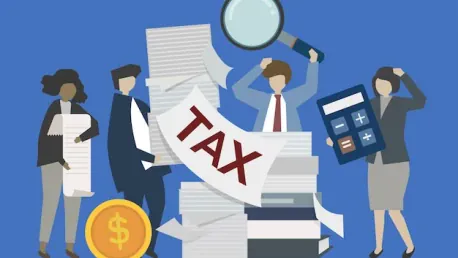In a significant step towards modifying the landscape of property taxation, Iowa Republicans have proposed measures to cap local revenue growth and eliminate the rollback system. The rollback policy restricts property value growth to 3%, taxing only a partial amount of the property value. This reform comes after extensive consultations with local governments and stakeholders, who have expressed the need for an updated taxation framework. The paramount objective is to transition to a system that taxes properties at their full value while curbing local government’s revenue growth at a modest 2%. Additional provisions accommodate exceptional cases like new construction and high inflation, ensuring the system remains fair and adaptive.
A crucial aspect of the proposal includes a substantial increase in the homestead tax exemption, which would rise from $25,000 to $50,000. This adjustment aims to alleviate tax burdens on homeowners while maintaining local governments’ functionality. To counterbalance potential revenue losses, the plan guarantees a minimum budget for local authorities, especially crucial for smaller communities that might struggle during this transition. Although full data analysis and feedback are pending, Republicans are prepared to refine the exemption further based on stakeholders’ input and economic impact assessments.
Modifications and Stakeholder Reactions
The Republican-led proposition to compromise on immediate tax reforms stems from the feedback of local governments who deemed the previous property tax laws insufficient. In response to concerns, crucial amendments have been integrated to ensure local entities can sustain their operational capabilities without encountering severe budget deficits. One of the standout features is the fiscal safeguard that prevents significant revenue loss during the transition from the rollback system, adding a layer of financial security for local administrations.
Additionally, Iowa lawmakers are considering the state absorbing a $426 million cost connected to school funding, typically derived from property taxes. This shift is aimed at reducing the tax burden on property owners while ensuring that educational institutions remain adequately funded. The proposal reflects a careful balance between fiscal responsibility and taxpayer relief, addressing both short-term financial constraints and long-term objectives. This approach represents an effort to make the system more sustainable and transparent, providing an equitable framework for taxpayers and local authorities.
Democratic Response and Alternative Propositions
While Republicans are advocating for these tax reforms, Democrats have approached the matter with caution. They have underscored the necessity of evidence-based assurances that the new system would indeed lower residential property tax rates. Driven by these concerns, Democrats have proposed an alternative plan that focuses on offering rebates to residents, highlighting their commitment to immediate taxpayer relief. Their approach emphasizes a more direct financial relief mechanism, looking to promptly address the fiscal strain on Iowan households.
The demand for reforms has been growing, especially after the property tax bill (HF 718) passed two years prior revealed its inadequacies. Democrats argue that this new Republican proposal, although progressive, needs thorough scrutiny and validation to ensure it does not inadvertently place additional financial pressures on citizens. This indicates an ongoing discourse within the legislative assembly, where both parties strive to develop a bipartisan solution.
Future Outlook and Concluding Insights
Iowa Republicans have taken a major step towards changing property taxation by proposing measures to cap local revenue growth and eliminate the rollback policy. The current rollback system limits property value growth to 3%, taxing only part of the property’s value. After thorough consultations with local governments and stakeholders, there’s consensus on the need for a revamped tax framework. The primary goal is to tax properties at their full value while capping local revenue growth at 2%. Provisions are in place for exceptions, like new construction and high inflation, to keep the system fair and responsive.
A key component of the proposal is a significant increase in the homestead tax exemption, doubling it from $25,000 to $50,000, aimed at reducing homeowners’ tax burdens while ensuring local governments remain functional. To balance potential revenue shortfalls, a minimum budget is guaranteed for local governments, crucial for smaller communities during this transition. While full data analysis and feedback are still forthcoming, Republicans are ready to adjust the exemption based on stakeholder input and economic impact assessments.









